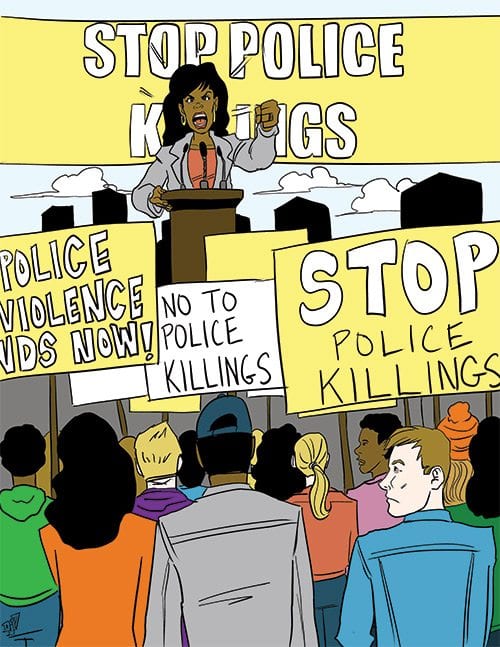
America has a serious problem, with no solution on the horizon. Despite great public awareness of violence between the police and unarmed blacks, the incidents continue. According to The Washington Post, police killed 233 blacks in 2016. President Trump seems to have great sympathy for the police as does his attorney general designate, Sen. Jeff Sessions of Alabama. Chances of blacks prevailing in criminal prosecutions against offending police officers are slim.
There was hope for a remedy after the violent assault on Rodney King by four LAPD officers in 1991. The Violent Crime and Law Enforcement Act was passed in 1994 to enable the U.S. Justice Department to investigate the violation of citizens’ civil rights by the police. However, the only remedy when unlawful police procedures are found is a consent decree.
Now more than 20 police departments are operating under consent decrees.
Critics of this procedure argue that these consent decrees do not result in the reform of police procedures. Pittsburgh, Cleveland, Los Angeles, Cincinnati, Oakland, New Orleans, Portland, New York, Detroit, Ferguson and now Chicago are all under decree, yet blacks feel no safer from police abuse.
As disappointing as the consent decree might be, it is still one of the best methods to enable the Civil Rights Division of the Justice Department to impose higher standards on the police. However, Jeff Sessions attacked this approach in a 2008 report of the Alabama Policy Institute. He stated that it is “one of the most dangerous, and rarely discussed, exercises of raw power.” He believes that “consent decrees have a profound effect on our legal system as they constitute an end run around the democratic process.”
The problem with that position is the normal judicial process does not work in the indictments of police officers. The most egregious example is the failure to convict Michael Slager, the police officer who callously gunned down the unarmed Walter Scott as he ran away in North Charleston, S.C. Even though the whole incident was recorded on video by a bystander, a holdout on the jury derailed a conviction.
In Ferguson, Mo., the former police officer who gunned down 18-year-old Michael Brown escaped federal or local level prosecution. In Cleveland, police officer Michael Brelo was acquitted when he and 12 other officers fired 137 rounds to kill unarmed suspects sitting in their car. In Baltimore, all of the police officers responsible for the death of Freddie Gray, who was in their custody, were acquitted of criminal charges.
Now a new police defense has developed. Five of the six police officers charged in the Freddie Gray case have sued Baltimore State’s Attorney Marilyn Mosby for malicious prosecution. A federal judge, Marvin Garbis, has allowed the case to go forward. Usually prosecutors enjoy immunity in prosecutions, but Garbis found that the investigative role played by Mosby differed from being merely a prosecutor.
Undoubtedly, fear of police retaliation influences some jurors. Now an unwise judge in Baltimore has made it more difficult for dedicated prosecutors to deviate from total reliance on police investigators in cases involving police misconduct. With judicial remedies limited, it should come as no surprise that some blacks will take remedial solutions considered to be unlawful.






